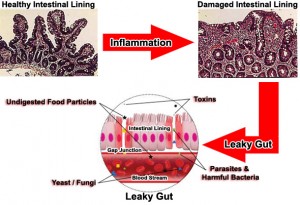“For every dollar we spend on prescription drugs, we spend a dollar to fix a complication. Understanding how nutritional supplements affect these drugs could make them safer and more effective.”
— Mehmet Oz, M.D., Professor of Surgery at Columbia University
and author of bestsellers “YOU: The Owner’s Manual” and “YOU: On A Diet”
The problem of medication-induced nutrient depletion is often overlooked and it’s part of holistic nutrition to replenish nutrients in patients who take medications on a regular basis. We help these patients to meet their nutrient needs through diet and supplementation after assessment. In fact, numerous studies indicate that many common medications can change our nutrient needs by affecting the digestion, transport, excretion or metabolism of nutrients.
Cholesterol Lowing Drugs Nutrient Potentially Depleted: Coenzyme Q10
These medications affect the metabolism of a vital nutrient called Coenzyme Q10 by blocking the activity of an enzyme called HMG-CoA in the liver required to synthesize cholesterol. This action also causes depletion of Coenzyme Q10 which requires HMG-CoA for production. Coenzyme Q10 is the energy powerhouse of our cells and our heart is particularly CoQ10 hungry as the heart muscles require energy for contraction. The potential side effects of Coenzyme Q10 depletion include increasing risk of congestive heart failure, muscle pain and weakness, memory problems, irritability, depression and mood swings (1-3).
Acid Blockers
Nutrients Potentially Depleted: Folic acid, Vit B12, Vit D, Calcium, Iron, Zinc
Antacids, proton-pump inhibitors (PPIs) and histamine-2 receptor antagonists (H2 Blockers) are commonly prescribed for treating heartburn, peptic ulcers and gastro-esophageal reflux disease (GERD). These medications work by neutralizing the acid pH of the stomach. However, this reduction of stomach acid can interfere with the digestion and absorption of nutrients such as iron, vitamin B12, folic acid and zinc.
One study showed that people who used high doses of PPIs for a year or more were 2.5 times more susceptible to hip fracture than control subjects. The risk factor decreased to 1.5 times that of non-users in lower doses usage. The longer the medications are used, the higher the risk of fracture. The increase in fracture risks is linked with the drastic drop in calcium and Vitamin D absorption when using the medications(4).
Next time, we will share about how anti-depressants, oral contraceptives and blood pressure lowing medications change our nutrient needs.
References:
1. Langsjoen PH, Langsjoen AM. The clinical use of HMG CoA-reductase inhibitors and the associated depletion of coenzyme Q10: A review of animal and human publications. Biofactors 2003;18(1-4):101-111.
2. Crane FL. Biochemical functions of coenzyme Q10. J Am Coll Nutr 2001;20:591-598.
3. Folkers K, Langsjoen P, Willis R, et al. Lovastatin decreases coenzyme Q levels in humans. Proc Natl Acad Sci U S A 1990;87:8931-8934.
4. Yang, YX, Lewis JD, Epstein S, Metz DC. Long-term proton pump inhibitor therapy and risk of hip fracture. JAMA 296 (24): 2947-53.





